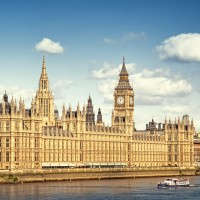
The House of Lords filed a motion to regret, meaning the Lords can put disagreement on the record but it cannot stop or amend a bill or law, for the Building Safety Leasehold Protection Regulations 2023.
The regret says that the government has not published data on the number of landlords that benefitted from an error which allowed landlords to transfer costs for historical remediation to leaseholders.
It added that it further regretted that the government had no intention of identifying leaseholders impacted by the error to advise them on their right to appeal to recover costs.
The motion called on the government to publish these figures in the “spirit of transparency” and to write to those impacted with “clear guidance on how to recover costs”.
Baroness Pinnock, who brought forward the motion, explained that it was the intention that a family of associated companies of the developer would be included in the assessment of company value and the ability of the developer to find remediation works.
“The regulations, unfortunately, excluded what have been described as parent and sister companies. This led to one very large developer being able to demonstrate that the special purpose vehicle that had been set up for the development did not of itself have the funds to pay for the remediation of safety defects,” Pinnock added.
She noted that if the family of associated companies had been included in that special purpose vehicle, which is what the regulations intended, then the developer would have to fund the costs of remediation.
However, due to the error, the company dodged paying for defects and through the “cascade system”, which assesses who is responsible for remediation with leaseholders at the end of that chain, passed on the costs to the leaseholders.
“This is grossly unfair to the leaseholder, and a major company, which had already bypassed building regulations unlawfully in constructing the property, was now avoiding the responsibility of paying for this dangerous and deliberate practice that put profit first and people’s lives in jeopardy,” she said.
Leaseholders trapped by ‘unscrupulous behaviour’
The Department for Levelling Up (DLUHC) was notified when a leaseholder got in touch with them, and Pinnock said they “quickly remedied the error” and altered regulations to close the loophole.
However, Pinnock said that there was “no remedy” for leaseholders who “unwittingly paid towards remediation costs when they should not have done”.
She said that the Secondary Legislation Scrutiny Committee asked the DLUHC to quantify the number of leaseholders who had been forced to pay when they should not have, but the DLUHC was “unable to provide a figure and does not seem to have made any attempt to do so”.
Pinnock noted that leaseholders could appeal to a first-tier tribunal but that awareness amongst leaseholders was low.
She said: “Leaseholders have been trapped all through this saga by the unscrupulous, immoral and unlawful behaviour of developers and others. The very least the government can do is to seek out those leaseholders, provide them with the necessary information about how they can recover their costs and support them in doing so,” she added.
Pinnock said the committee had asked whether protection for affected leaseholders could be brought in retrospectively, through primary legislation if needed.
“This is injustice heaped on injustice. It was a government error, and the government should do all in their considerable power to put it right,” she noted.
‘A terrible scar on the industry’
Also speaking in the House, Bishop of St Albans added: “It is extraordinary, when the government have already committed themselves to doing so many things on this—not least reforming the leaseholder system, which we will watch with great interest—and troubling that this unintentional problem, which is having a devastating effect on some people, is seemingly not being addressed.
“It would be a huge help if we could simply get the figures published to find out how many people are being affected by what seems to be an error and then try to help those people to find a remedy.”
He continued that this was a “terrible scar on the whole industry” and the government needed to “find ways to work with those who have unintentionally found themselves caught up in this and are quite desperate”.
Only ‘small number’ of leaseholders impacted by loophole
Baroness Scott of Bybrook, who is the Parliamentary Under Secretary of State for the DLUHC, said that it did not collect data on leaseholders who are liable to pay for the remediation of historical safety defect, pointing to the fact it is a “not a centralised process”.
“We have, however, been made aware by leaseholders and, indeed, parliamentarians, of a very small number of cases where landlords state that they did not believe they met the contribution condition because of this unfortunate and unintended error.
“As I say, to date these cases are small in number, but, of course, we must say sorry to those people, because it will affect them, however few they are,” she continued.
Pinnock rebutted this by noting that it could be a small but “we have no idea whether it is small or large, and the government should find out”.
Scott added that leaseholder caps would have limited the amount spent, and the regulations included anti-avoidance and enforcement provisions to “ensure that those who are liable to pay do so”.
She noted that leaseholders could go to the first-tier tribunal and applications for remediation contribution order cost £100.
Scott added that the government had not plan to introduce retrospective provision through primary legislation, and extensive guidance on leaseholder protections was available on its website.
She also pointed to the Leasehold Advisory Service as a resource for free support and guidance.
Scott said that the regulation also refers to landlords and building owners so the “mistake has no effect on the liability on developers”.
The motion received 183 ayes and 136 noes in the House of Lords.
















